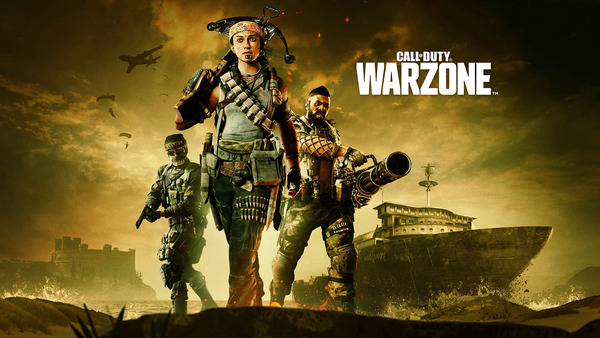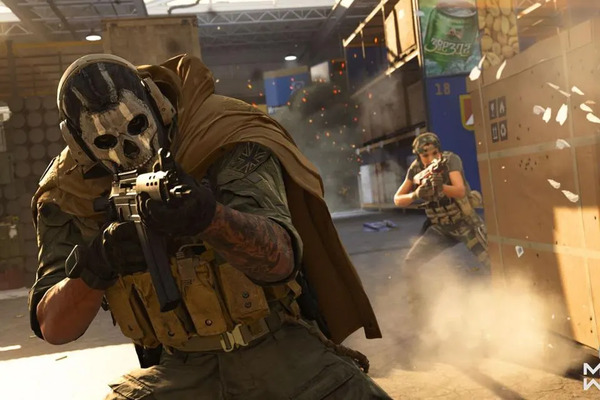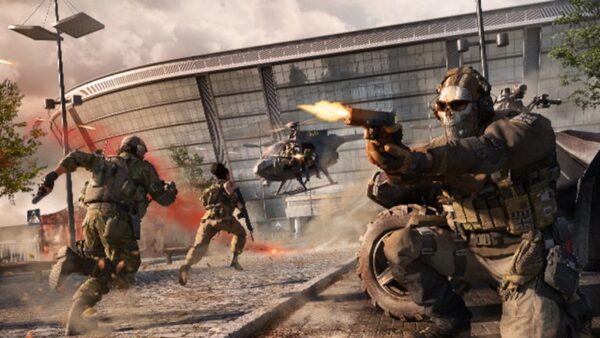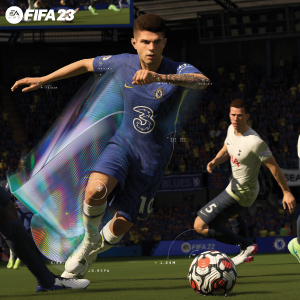
Call of Duty
All trademarks belong to their respective owners.
Advertisement
Popular Now
Call of Duty: Warzone, the free-to-play battle royale from Activision, took the gaming world by storm when it launched in March 2020. With its expansive map, thrilling gunplay, and fast-paced action, it quickly became one of the most played games globally. However, alongside its success, Warzone has struggled with a pervasive issue that has increasingly undermined the player experience: cheating. From aimbots to wallhacks, the problem has plagued the game since its early days, leading to widespread frustration among both casual and competitive players.
This article dives deep into the issue of cheating in Call of Duty: Warzone, exploring its rise, impact, and the efforts by Activision to combat it. The gaming community’s reactions, the steps taken to mitigate the problem, and the long-term effects on the game's integrity will be thoroughly examined.


 The pervasive presence of cheaters in Warzone has had a significant impact on its competitive integrity, particularly in esports tournaments. The game’s rise in the competitive scene meant that cheaters were also targeting tournament play, potentially influencing outcomes and damaging the credibility of events.
The pervasive presence of cheaters in Warzone has had a significant impact on its competitive integrity, particularly in esports tournaments. The game’s rise in the competitive scene meant that cheaters were also targeting tournament play, potentially influencing outcomes and damaging the credibility of events.

The Rise of Cheating in Warzone
From its very launch, Warzone became an enticing target for cheaters. As a free-to-play game with a huge player base, it provided both anonymity and the opportunity for cheaters to exploit the game without fear of significant repercussions. With battle royale games becoming more popular, Warzone was no exception to the rise in cheating.The Allure of Cheating in Battle Royale
In Warzone, where survival is the primary goal, even a single advantage can drastically increase a player’s chances of winning. This makes cheating particularly tempting in the battle royale genre, where encounters with other players are unpredictable, and players can exploit any weakness in the game's mechanics. Warzone players can access cheats like aimbots, which automatically snap to enemy targets, and wallhacks, which allow them to see enemies through walls. These cheats give players an unfair advantage, making the game feel less like a test of skill and more like a rigged competition.The Immediate Impact of Cheating on Gameplay
As cheating became more prevalent in Warzone, its immediate effects were felt across the community. Players found themselves in lobbies filled with cheaters, ruining the fun of what should have been a tense and competitive game. The core appeal of Warzone—surviving to become the last player standing—was undermined by the presence of cheaters who were seemingly able to lock onto targets with precision or see through walls.Frustration Among Players
For many legitimate players, encountering cheaters turned what was meant to be an exciting, adrenaline-pumping experience into a tedious chore. Players who were killed by cheaters voiced their frustration on social media platforms, gaming forums, and through in-game reports. As the number of cheaters grew, so did the resentment among the player base, with many calling for Activision to take stronger action to address the problem.
Activision’s Initial Responses
In the early stages of the game's lifespan, Activision’s response to cheating was slow. While there were reports of a reporting system to flag cheaters, it was often ineffective. Players frequently reported cheaters they encountered, but many felt that the system was not fast enough to ban players or prevent them from returning to the game.Anti-Cheat Measures Introduced
In an effort to combat the growing problem, Activision introduced RICOCHET, a kernel-level anti-cheat system, in December 2021. The system was designed to detect and block cheats by monitoring system-level activities. It was a bold move, but also a necessary one, as previous anti-cheat solutions had proven insufficient. Players hoped that this would finally put an end to the rampant cheating. However, despite the introduction of RICOCHET, cheating persisted, and the battle between cheaters and anti-cheat developers became a cat-and-mouse game. While RICOCHET initially showed some promise by banning thousands of cheaters, many players felt that cheaters were still able to find new ways to bypass the system.The Evolution of Cheating Methods
As Warzone’s anti-cheat measures improved, cheaters evolved their methods in response. The ongoing battle between developers and cheaters led to the development of increasingly sophisticated cheats. Aim assist—a tool often used by console players to help with aiming—was manipulated by cheaters to give them an unfair advantage on mouse and keyboard. Botting programs were also introduced to exploit the game’s mechanics and automatically perform actions that would be difficult for human players to replicate.The Rise of Undetectable Cheats
One of the major issues in combating cheating is the rise of undetectable cheats, which are specifically designed to bypass the anti-cheat systems. These cheats often use sophisticated algorithms to mask their presence and make them difficult for RICOCHET or any other anti-cheat solution to identify. This led to further frustration in the community, as players continued to encounter cheaters who were seemingly immune to detection.The Effect on Competitive Integrity
 The pervasive presence of cheaters in Warzone has had a significant impact on its competitive integrity, particularly in esports tournaments. The game’s rise in the competitive scene meant that cheaters were also targeting tournament play, potentially influencing outcomes and damaging the credibility of events.
The pervasive presence of cheaters in Warzone has had a significant impact on its competitive integrity, particularly in esports tournaments. The game’s rise in the competitive scene meant that cheaters were also targeting tournament play, potentially influencing outcomes and damaging the credibility of events.
















